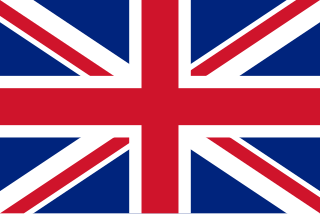
At the 1900 Summer Olympics, a polo tournament was contested. Matches were held on 28 May, 31 May, and 2 June. Five teams competed. Four of these teams were of mixed nationality, with British and French athletes competing on three teams. There was no playoff for third place.

The United Kingdom has been represented at every modern Olympic Games. By end of the 2024 Summer Olympics, it is third in the all-time Summer Olympic medal table by overall number of medals, and fourth in number of gold medals won. London hosted the Summer Olympic Games in 1908, 1948 and 2012.

The modern Olympic Games were founded by French historian Pierre de Coubertin. France has competed in every edition, with the possible exception of the 1904 Games.

Field hockey made its debut at the Modern Olympic Games as a men's competition in the 1908 Games in London. It was removed from the Olympic schedule of the Summer Olympic Games for the 1924 Paris Games and was reintroduced in the 1928 Amsterdam Games. The Women's field hockey was introduced into the Olympic programme at the 1980 Moscow Olympics.

France competed at the 1920 Summer Olympics in Antwerp, Belgium. 304 competitors, 296 men and 8 women, took part in 113 events in 23 sports.

Great Britain, represented by the British Olympic Association (BOA), competed as the host nation of the 1908 Summer Olympics in London. The British Olympic Association was the National Olympic Committee responsible for organising the United Kingdom's representation. At the time British athletes competed under the team name "United Kingdom". The British team comprised 676 competitors.

Great Britain, represented by the British Olympic Association (BOA), competed at the 1912 Summer Olympics in Stockholm, Sweden. 274 competitors, 264 men and 10 women, took part in 79 events in 16 sports. British athletes won ten gold medals and 41 medals overall, finishing third.

Great Britain, represented by the British Olympic Association (BOA), competed at the 1920 Summer Olympics in Antwerp, Belgium. 234 competitors, 218 men and 16 women, took part in 84 events in 21 sports. British athletes won fourteen gold medals and 43 medals overall, finishing third. It would be the last Olympic Games in which Irish athletes participated for Great Britain, after foundation of Irish Free State in 1922.

Great Britain, represented by the British Olympic Association (BOA), competed at the 1924 Summer Olympics in Paris, France. This was the first Summer Olympics in which athletes from the newly independent Irish Free State competed separately. Following the Royal and Parliamentary Titles Act 1927, the name changed (officially) to 'United Kingdom of Great Britain and Northern Ireland' but the Olympic team competed as Great Britain from the 1928 games onwards. 267 competitors, 239 men and 28 women, took part in 115 events in 18 sports.

Sweden competed at the 1920 Summer Olympics in Antwerp, Belgium. 260 competitors, 247 men and 13 women, took part in 100 events in 18 sports.

The United States competed at the 1920 Summer Olympics in Antwerp, Belgium. 288 competitors, 274 men and 14 women, took part in 113 events in 18 sports.

Austria competed at the 1912 Summer Olympics in Stockholm, Sweden. Austrian and Hungarian results at early Olympic Games are generally kept separate despite the union of the two nations as Austria-Hungary at the time. 85 competitors, 76 men and 6 women, took part in 46 events in 12 sports.

The Netherlands competed at the 1920 Summer Olympics in Antwerp, Belgium. 130 competitors, 129 men and 1 woman, took part in 58 events in 15 sports.

Belgium competed at the 1912 Summer Olympics in Stockholm, Sweden.

Belgium was the host nation for the 1920 Summer Olympics in Antwerp. 336 competitors, 326 men and 10 women, took part in 121 events in 23 sports.

Belgium competed at the 1928 Summer Olympics in Amsterdam, Netherlands. 187 competitors, 176 men and 11 women, took part in 90 events in 15 sports.

Spain competed at the 1920 Summer Olympics in Antwerp, Belgium. It was only the second appearance of the nation at the Summer Games, after competing in the 1900 Summer Olympics, but missing the Games in 1904, 1908, and 1912. 58 competitors, all men, took part in 29 events in 7 sports.

A polo tournament was contested at the 1924 Summer Olympics in Paris. The competition ran from 28 June to 12 July at the Château de Bagatelle and the Saint-Cloud Racecourse, with five teams competing. Argentina won the gold medal, beating all four of the other nations in the country's Olympic polo debut. Silver went to the United States, which played in—and won—the first three games of the tournament before a close-played (6–5) loss to Argentina in game 6. Great Britain, the two-time defending champions, finished with bronze.

Polo returned to the Olympic program at the 1936 Summer Olympics in Berlin, after not being contested at the 1928 Games or 1932 Games. The 1936 tournament was the last time that the sport was contested at the Olympic Games. Argentina repeated as champions, winning gold medals in both of the Games in which the nation competed. Great Britain took silver; British polo players had earned medals in all five of the Olympic polo tournaments. Mexico took bronze, matching its previous performance in 1900.
This article presents the national team appearances in the men's Olympic water polo tournament since the inaugural official edition in 1900.














